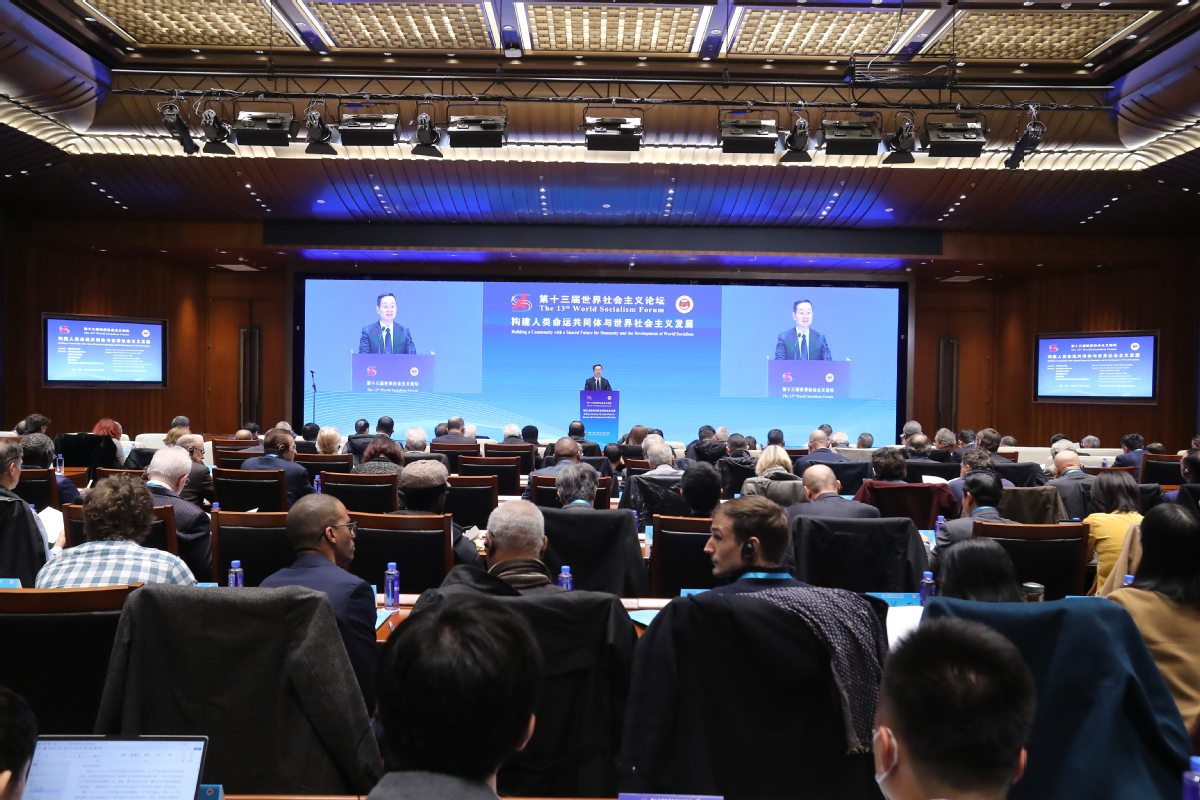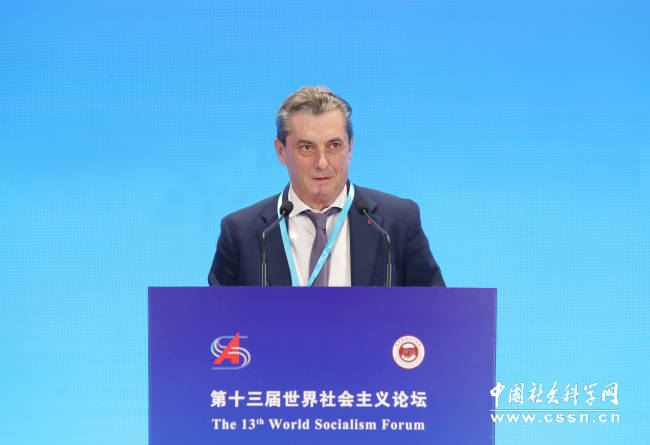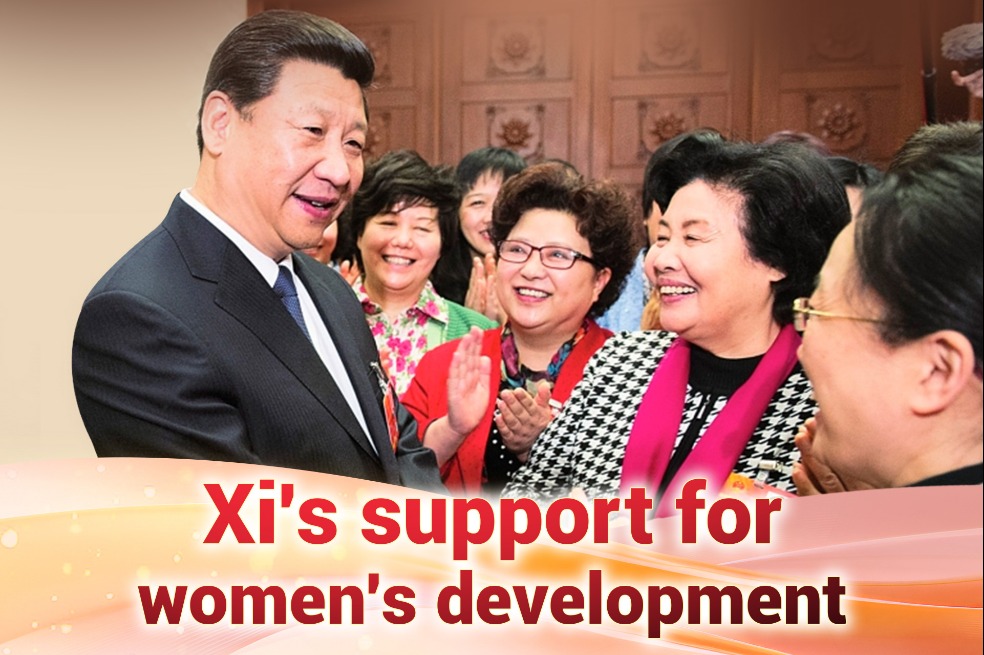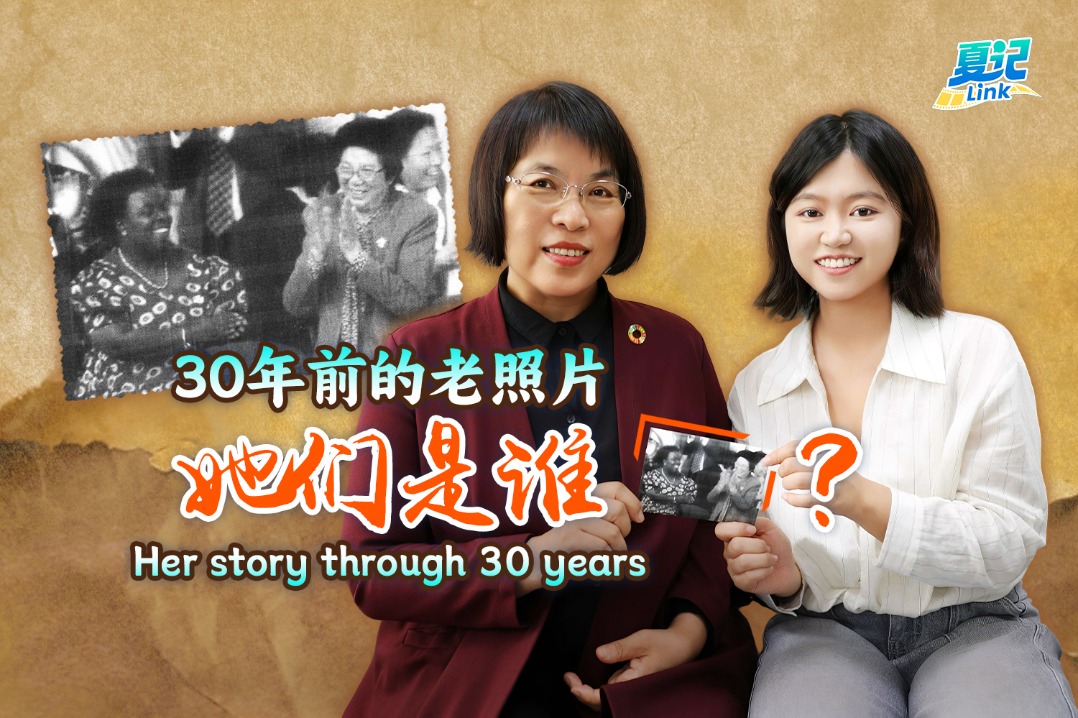Forum contributes insights on building a shared future for humanity through socialism
By Song Ping | chinadaily.com.cn | Updated: 2023-12-06 08:59

China's vision of building a global community with a shared future, embodying a modern interpretation and development of Marx's concepts of human emancipation and communism, received widespread support among experts at the 13th World Socialism Forum in Beijing last week.
The forum, themed "Building a Community with a Shared Future for Humanity and the Development of World Socialism," was recently hosted by the Chinese Academy of Social Sciences. With the participation of over 80 foreign Communist Party leaders, Marxist researchers, and diplomatic envoys from 37 countries, the event provided a platform for insightful discussions about the influential role of China in advancing scientific socialism for human progress.
Gao Xiang, president of CASS, emphasized that the concept of building a community with a shared future for humanity showcases China's wisdom in global governance and its determination to work towards a world that is equal, open and peaceful. The initiative, he noted, seamlessly integrates the fundamental principles of Marxism with the essence of traditional Chinese culture, demonstrating a dedicated commitment to the common interests and well-being of all humankind.

José Luis Centella, president of the Communist Party of Spain, acknowledged the significance of building a community with a shared future for humanity in the midst of the complex and volatile international situation. He highlighted that China's proposed Initiatives, including the Belt and Road Initiative, the Global Development Initiative, the Global Security Initiative and the Global Civilization Initiative, will greatly contribute to building a better international community.
Md. Shah Alam, chairman of the Communist Party of Bangladesh, said that adhering to the right course of economic globalization, China strives to benefit people and mankind with its incredible progress and development of science and technology. China's initiatives will free developing countries from world economic and political pressure.
Thürmer Gyula, president of the Hungarian Workers' Party, said "We need a deep study of the experience of Chinese communists. The Communist Party of China has collected very important and suggestive experience in modernization. China is committed to the path of peaceful development. The ultimate goal of China's development is to better the Chinese people's lives." He suggested that "Our program should be to defend world peace, promote human progress, and work to build a community with a shared future for mankind. We want a multipolar world where countries with different social systems can exist and cooperate."
Alberto Lombardo, general secretary of the Communist Party (Italy), said that the crusade launched by the self-styled "democracies" against the alleged "autocracies" poses grave dangers for stability and progress. "Never before has the prudent and far-sighted policy of the Chinese leadership projected its stabilizing and peaceful role throughout the world as in this moment," he added.
Rossana Cambron, the co-chair of the Communist Party of USA, highlighted the reality that human development has evolved to the point of ending world suffering, but we need to change our country's priorities to meet social needs. Only if redirecting funds into our communities, she said, can we resolve various social crises.
Irina Santesteban, general secretary of the Liberation Party of Argentina, pointed out that external debts in many poor and developing countries show a huge inequality between the hegemonic countries and the third-world countries. She firmly believes that socialism is the key to liberating humanity from poverty and inequality.
Liisa Marjatta Taskinen, the chairperson of the Communist Party of Finland, emphasized the common shared future of humanity cannot be based on militarism and increasing tensions. She advocated for creating space for democracy, diplomacy and peaceful dialogue between various countries and the peoples who live in them.
Robert Griffiths, general secretary of the Communist Party of Britain, believed the Belt and Road Initiative proposed by China is a new type of modernization, equipping developing countries for more beneficial participation in the global economy.
Luis Villanueva, general secretary of the Peruvian Communist Party, attributed China's vigorous development to its diplomatic thinking and commitment to the right direction of economic globalization. He emphasized that socialist modernization is propelling China toward narrowing the gap with developed countries and achieving a great rejuvenation of the nation.
Jin Yiling and Fan Ziqi contributed to this story.
























